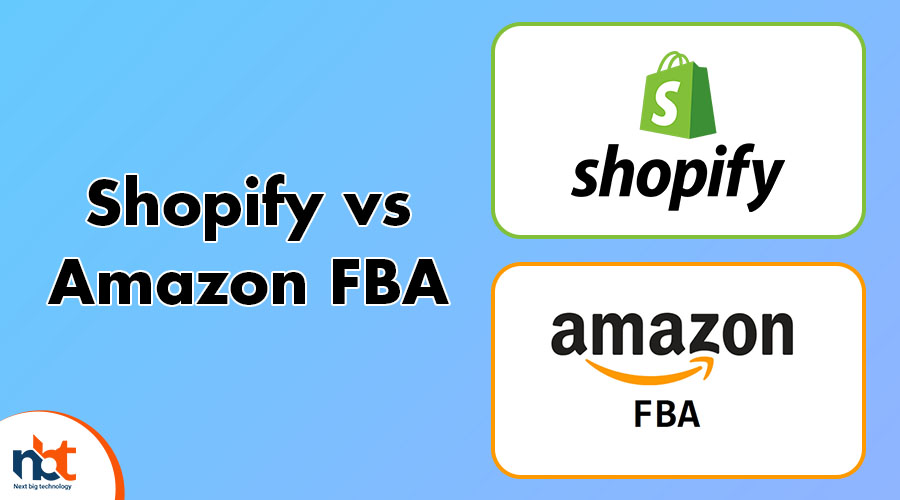When it comes to selling things online, the proper eCommerce platform is essential. Two major companies in the field are Shopify and Amazon FBA. The former supports around 800,000 firms, while the latter attracts 2.5 billion visits every month.
If you want to pick one of them, read our Shopify vs Amazon FBA comparison based on their benefits and drawbacks.
Table of Contents
Shopify vs Amazon FBA – Comparison of Pros and Cons
Shopify
It is a top e-commerce platform that enables entrepreneurs to build their online stores without technical knowledge. Shopify is the perfect platform to use because of its user-friendliness, simplicity, and design features. This platform helps you to build a premium quality online store.
Pros:
Free 3 months trial
User-friendly
Mobile friendly
Flexible design
The affordable choice to online store development
Personal ownership and more control
Access to robust e-commerce apps and tools
Unique brand identity building
Opportunity to build a solid online business
Free payments
The Shopify beneficial features keep on evolving. You can access the basic plan, build your online store and try for 90 days without charges. During those 3 months, you can Shopify payments to understand how a Shopify store functions.
As Shopify is a flexible platform offering access to e-commerce apps and tools, you can build your brand identity and grow your online store rampantly.
Also Read: Best eCommerce Platform : Neto or Shopify
Cons
Independent marketing
Increased marketing costs
Additional monthly fees with extra app usage
The basic plan does not give access to reports
Third-party payment system applies tea sanction fees
It takes time, money, and effort to promote your brand and attract sales via your Shopify store. Though you can’t view any report with the basic plan, still you need to track your data. If you don’t use Shopify payment, you need to pay a transaction fee on all sales.
Amazon FBA
Amazon FBA is a user-friendly e-commerce platform and thus, perfect for beginners.
Pros:
Free 30 day trial with a Pro Account
Immediate access to audience worldwide
Easy setup and immediate selling
Instant reach to motivated buyers
Integrated customer service
Simple refund and return service
Sales reports data
FBA service availability
The 30-days AmazonPro trial enables you to set up your product listings and start selling immediately to a global audience. Once you list a product, you can get your first sale in an hour.
The registration and setup process is longer with FBA as you need to ship products to a dedicated Amazon warehouse.
Cons:
15 to 40% payable fees to Amazon for all sales
Adherence to Amazon rules and risk suspension
Highly saturated platform
No store page control
No designing options
The extra Amazon fees you need to pay are not just worth it which causes monetary losses.
Shopify vs Amazon FBA – Conclusion
Conclusion: Shopify vs. Amazon FBA
Choose Shopify if you want complete freedom and control over your online store so you can advertise things and generate large profits.
Choose Amazon if you want to improve sales using a ready-made platform while maintaining some control over higher fees and certain limits.
Consider your time availability, degree of control, the amount of effort you’ll need to put in, and how quickly you want your business to expand when it comes to creating an online store and generating money.










